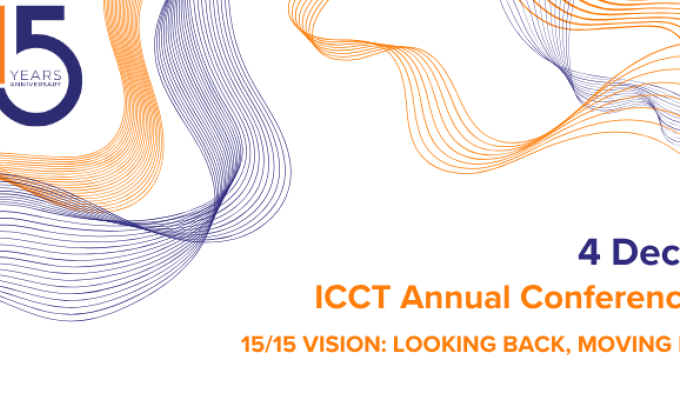Ten years after 9/11, we seem to be witnessing an important turning point in the strategic thinking about counter-terrorism policies and measures. Over the last months, the inboxes of counter-terrorism professionals have seen a wide variety of reports evaluating ten years of intensified counter-terrorism measures. Quite a number of these reports advocate the necessity of a strategic re-orientation of counter–terrorism activities, moving away from a focus on reactive policies and "hard" measures to include more civil society engagement and a stronger human rights focus. The reports reaffirm a gradual change from governments solely focusing on repressive tactics to the prevention of violent radicalisation. They also describe a shift from viewing acts of terrorism within a war paradigm towards a law enforcement approach. And lastly, one can discern a move away from fully state-led counter-terrorism strategies to more inclusive, multi-level approaches that engage civil society actors and the general public. We warmly welcome these strategic developments, since themes such as the engagement of non-governmental actors, the prevention of violent radicalisation, and the necessity of a strong human rights and rule of law based approach have been at the core of ICCT’s agenda ever since its inception.
This rethinking may have been spurred by the weakening of Al Qaeda after the death of Osama Bin Laden and further exacerbated by the so-called Arab Spring. It might also have be the withdrawal of troops in Iraq and Afghanistan that necessitates a new counter-terrorism approach. Or perhaps it is merely looking back at ten years of intensified counter-terrorism measures which inspires reflection and new long-term strategic policy considerations. Likely, it is a combination of all these factors that have led us to this point.
And the strategic reorientation is not just rhetoric: action is in fact put behind these words through the recent establishment of two new international counter-terrorism initiatives, namely the Global Counterterrorism Forum and the European Radicalisation Awareness Network. Both initiatives specifically focus on the prevention of violent extremism through international cooperation and networking of people, knowledge and experiences. Both seem well equipped to further move the field of counter-terrorism in the right direction. But the way in which they will deal with issues such as the inclusiveness of input, procedures and output; their operational independence; the challenge of striking the right balance between human rights and repression; and the way in which they can reach out and collaborate with civil society actors, will determine whether they will become the driving forces in the strategic re-orientations or turn out to be ineffective paper tigers.
Global Counter-Terrorism Forum
The first new initiative is the multilateral Global Counterterrorism Forum (GCTF). The GCTF brings together a number of UN Member States – among which the United States, Turkey, Egypt, Indonesia, Pakistan, Russia, The Netherlands and Saudi Arabia – and will serve as a mechanism for furthering the implementation of the universally-agreed UN Global Counter-Terrorism Strategy and, more broadly, complement and reinforce existing multilateral CT efforts, starting with those of the United Nations. The GCTF aims to propel a number of aspects of the global Counter-Terrorism Strategy, as well as focus on capacity building in several regions. Initial working groups will focus on: a) countering violent extremism (CVE); b) the rule of law; c) capacity building in the Sahel region; d) capacity building in the Horn Region; and e) capacity building in Southeast Asia.
To focus the GCTF’s efforts on countering violent extremism, a new and promising CVE Centre of Excellence will be launched in Abu Dhabi this spring. It is hoped that the Centre will encourage the Forum Member States to share experiences in the field of countering radicalisation and will have the potential to work with civil society organisations, practitioners and other important local actors. Although still in its developmental phase, the Centre may serve as a nucleus for exchange of good practices and capacity building in the field of violent extremism. It will also focus on tackling the factors conducive to the choice of individuals and groups for violence as a means to further their political goals. Why do people support violent political organisations? Why do people feel that no other language works other than the message of hatred and fear? If governments and civil actors understand these motivational factors, the basis and the beginning of an answer can start to take shape. A Centre of Excellence could also increase the global discussion on these factors and use regional and local understanding to train practitioners and enhance capacity.
The GCTF CVE Centre looks like an encouraging initiative supported by several key UN Member States in the field of counter-terrorism. Although a number of very delicate difficulties are yet to be overcome, the potential of propelling the abovementioned themes is there. The Centre’s position and independence need to be guaranteed, the necessity of sharing and collaborating instead of competing needs to be embedded in its core, its relation to the UN system made clear, and most of all monitoring systems need to be put in place in order to effectively measure quality, efficiency and impact. The former notwithstanding, the CVE Centre of Excellence presents an excellent opportunity for cross border collaboration and has already garnered substantial support – with surely more to come.
The second initial thematic focus of the GCTF, the rule of law and the criminal justice sector, also signals a welcome change from the war paradigm in counter-terrorism. Over the last decade, the US has associated international acts of terrorism with war and its accompanying legal instruments, whereas other actors, such as the EU, have viewed acts of terrorism as criminal acts which can be dealt with through both national and international law enforcement structures and mechanisms. The focus of the Forum could signal a potential change in the US position, though recent legislation such as the National Defense Authorization Act seems to counteract this. Nevertheless, the focus of the rule of law working group may create the space for in-depth discussions on the relevant legal framework and regulation of counter-terrorism work, including human rights concerns and the ongoing debate between the US and European approaches to international law. Civil society actors and human rights organisations should embrace these initiatives and be part of it and the Forum should ensure that their important experiences and knowledge are heard.
EU Radicalisation Awareness Network
Around the same time that the GCTF was launched, the EU announced the inauguration of the so–called Radicalisation Awareness Network (RAN). Again, 11 September 2011, the “ten years after” commemoration, was the chosen occasion. The European Commission, like the GCTF Member States, realised that investing in counter-radicalisation work, creating a network of professionals working on this issue across the EU, is a vital next step in counter-terrorism. The RAN will connect researchers, social workers, religious leaders, youth leaders, policemen and others, working on the ground in vulnerable communities, enabling them to exchange ideas, methods, good practices and evaluation mechanisms, particularly in relation to challenging violent extremist narratives and recruitment. The network will also contribute to policy processes at national and European level, support the Commission and the Member States in their work and provide them with the necessary instruments for preventing terrorism. The creation of the RAN further demonstrates the shift in counter-terrorism thinking: focusing on strategic networking, connecting the existing actors and the knowledge on the prevention of violent radicalisation.
An Inclusive & Balanced Approach
Ten years after 11 September 2001, counter-terrorism policies and practices are rapidly changing in character around the world. There has been a gradual change from focusing on (post-incident) repression to the prevention of violent radicalisation. There is also a shift from viewing acts of terrorism within a war paradigm towards a law enforcement approach. Finally there has been a move from fully state-led to multi-faceted, multi-level, multi-actor strategies.
This strategic repositioning to an inclusive, multi-actor balanced approach to counter-terrorism will however bring the challenge of actually striking that right balance. Where is the line between freedom of speech and incitement to violence? How do we protect human rights and privacy standards while working on prevention and counter-radicalisation? How do we increase political space without rewarding violent action? Who should be invited to the negotiating table and on what conditions? How do we prevent impunity and promote reconciliation without letting the bad guys walk free?
Counter-terrorism professionals are entering into a new era with new challenges, and will need all the expertise that already exists in other fields, from conflict prevention specialists to human rights activists, from demobilisation experts to humanitarians. For too long, the counter-terrorism field has been divided and separated into various disciplines and this has hindered progress.
These new initiatives have the potential to link all of these disciplines under one inclusive umbrella. This cooperation has the potential to harness both new and existing expertise and increase efficiency and collaboration. But in order for these new developments not to become ineffective paper tigers, the thematic re-focus should go hand in hand with the formation of new strategic alliances and genuine, mutually beneficial, exchange and concrete visible action. These latest initiatives present that opportunity.







